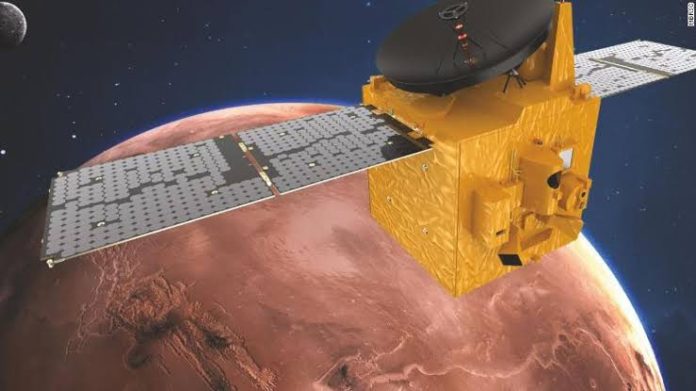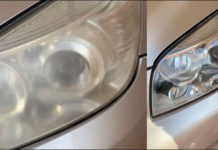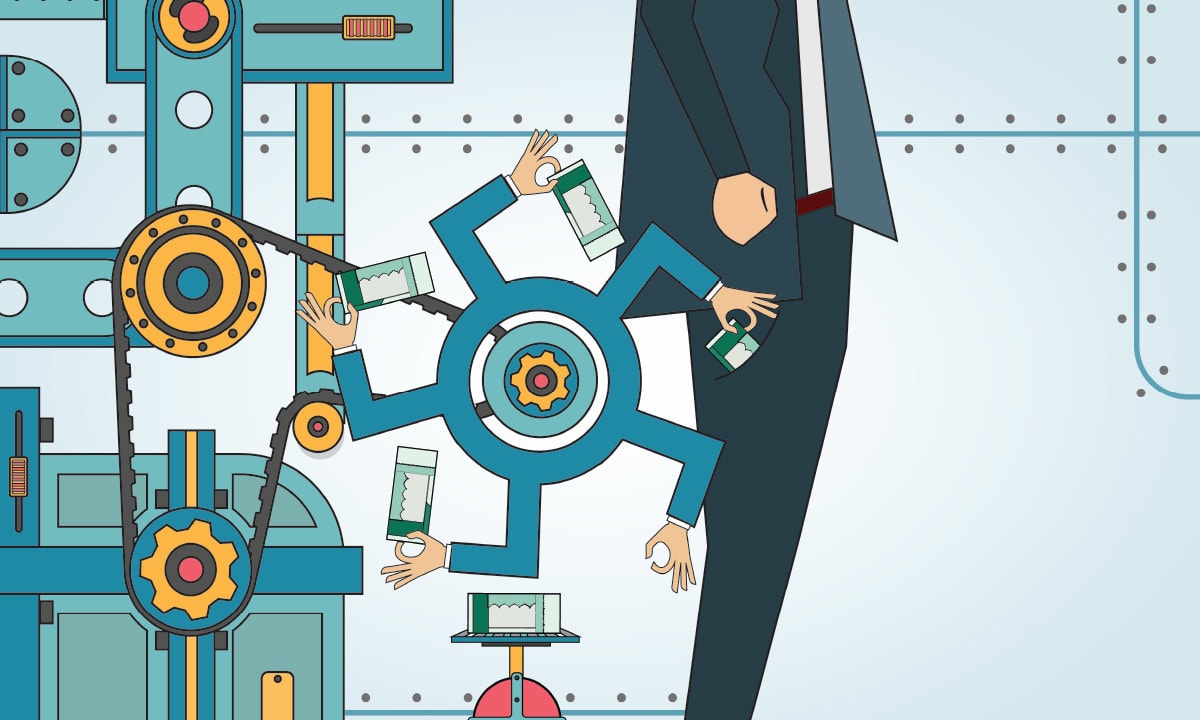The UAE space mission ‘Hope’ to Mars has been launched today from Japan’s Tanegashima space base and will reach Mars orbit after a seven-month journey. Earlier, its July 15 launch was postponed due to bad weather.
After a journey of 500 million kilometers, the robotic spacecraft will reach Mars on February 2021.ts arrival on Mars will mark the fiftieth anniversary of the founding of the United Arab Emirates. Hope is one of three space missions to Mars this month. Both the United States and Chinese spacecraft are in the final stages of development.
The United Arab Emirates is planning to send a satellite to Mars for the first time in its history to analyze its weather and climate. Weighing 1.3 tons, the satellite is called Hope and was launched by an H2A rocket from Tanegashima, a remote Japanese space base. Hope’s scientific team is headed by Sarah Al-Amiri, who is also the UAE’s Minister for Scientific Development.
She is the face of the Hope Mission in many ways and she was previously associated with the Muhammad Bin Rashid Space Center as a software engineer. Now she wants to spread her passion for space.
The UAE has limited experience in designing and building spacecraft and yet it is trying to do something that only the United States, Russia, Europe and India have been able to do successfully so far. But it has strengthened the UAE’s resolve to work on the challenge.
Trained by American experts, their engineers have built a state-of-the-art satellite in just six years, and when it reaches Mars, it is expected to reveal new scientific facts and the planet’s atmosphere. New updates and information will be available regarding the wonder planet.
In particular, scientists believe that this will increase their understanding of how Mars lost a large part of its atmosphere, along with the large amount of water on it. Hope is being hailed as an inspiring mission to encourage more young people in the UAE and the Arab region to study science in schools and universities.
Significantly, 34% of Emirati working at Hope are women. “But more importantly, we have gender equality in the team leading this mission,” says Sarah. The UAE government says the satellite is one of several projects aimed at ending the country’s dependence on oil and gas and making it a science and technology-based economy.
But in the case of Mars, as always, there are many dangers. About half of the missions to the Red Planet have failed. Hope’s project director, Imran Sharif, is aware of the dangers, but insists his country is right to try.
The UAE government told the project team that they could not buy the spacecraft from a major foreign company, so they would have to build the satellite themselves.
This meant partnering with American universities that had experience in this area. Emirati and American engineers and scientists have developed a joint spacecraft system and three instruments that will monitor the atmosphere of Mars.
Most of the preparation took place in a lab at the University of Colorado, but special work also took place at the Mohammed bin Rashid Space Senator in Dubai.
UAE did not just want to do the research that other institutions have already done. So the team went to NASA and asked them what kind of research the UAE could do that would enhance existing information? The objectives of this project were determined in light of the recommendations of NASA’s Mars Exploration Program Analysis Group.
The satellite will examine how energy is transferred to the atmosphere of Mars, and will be measured at all times of the day and in all seasons of the year. It will also examine the soil on Mars, which affects the planet’s temperature.
It will also examine the hydrogen and oxygen atoms just above the atmosphere. Scientists suspect that these atoms play a role in the gradual elimination of the Martian atmosphere. All of this will explain why there is no more water on Mars, which was clearly available in the past. The Hope mission will fly 22,000 to 44,000 kilometers from the planet to make these observations.








